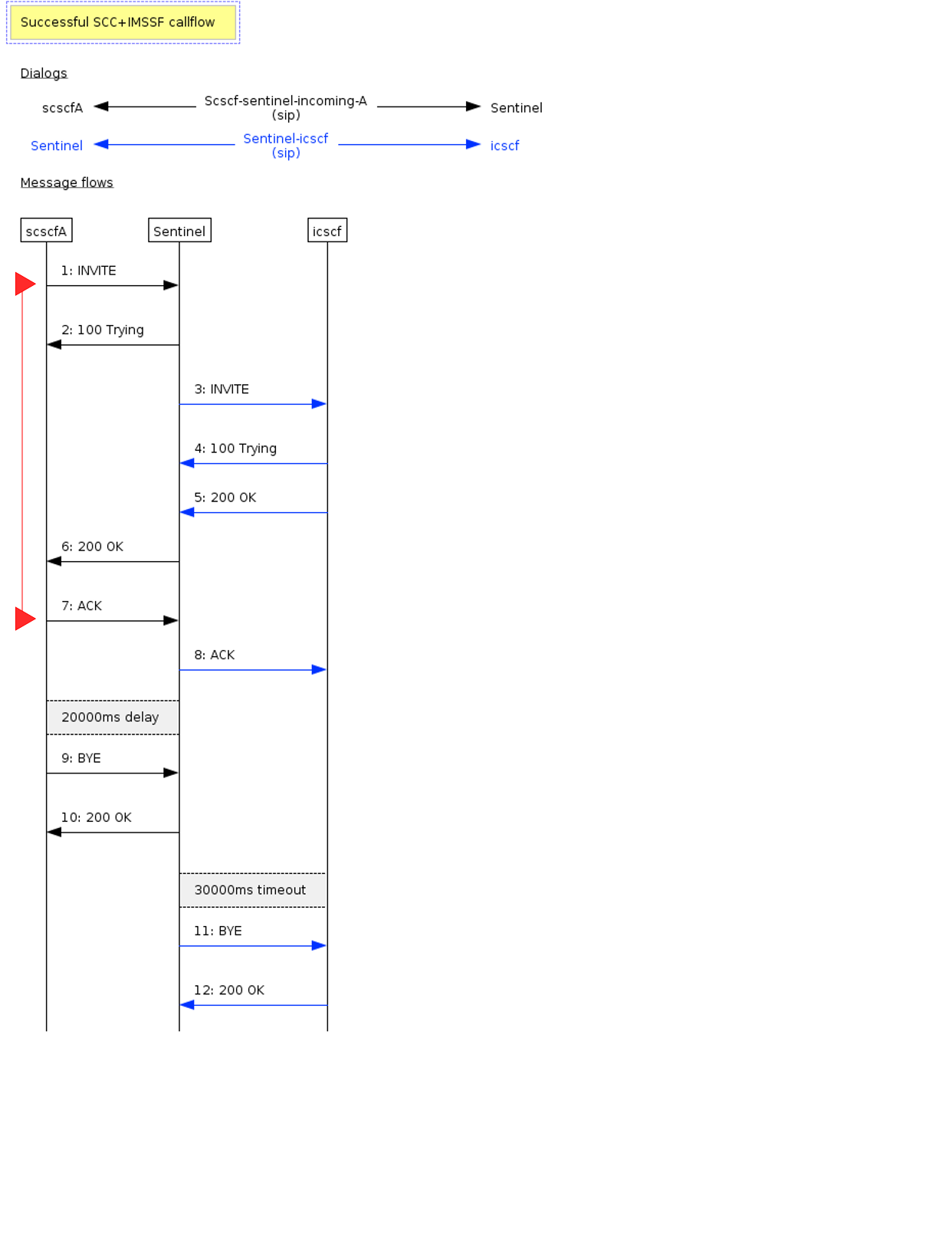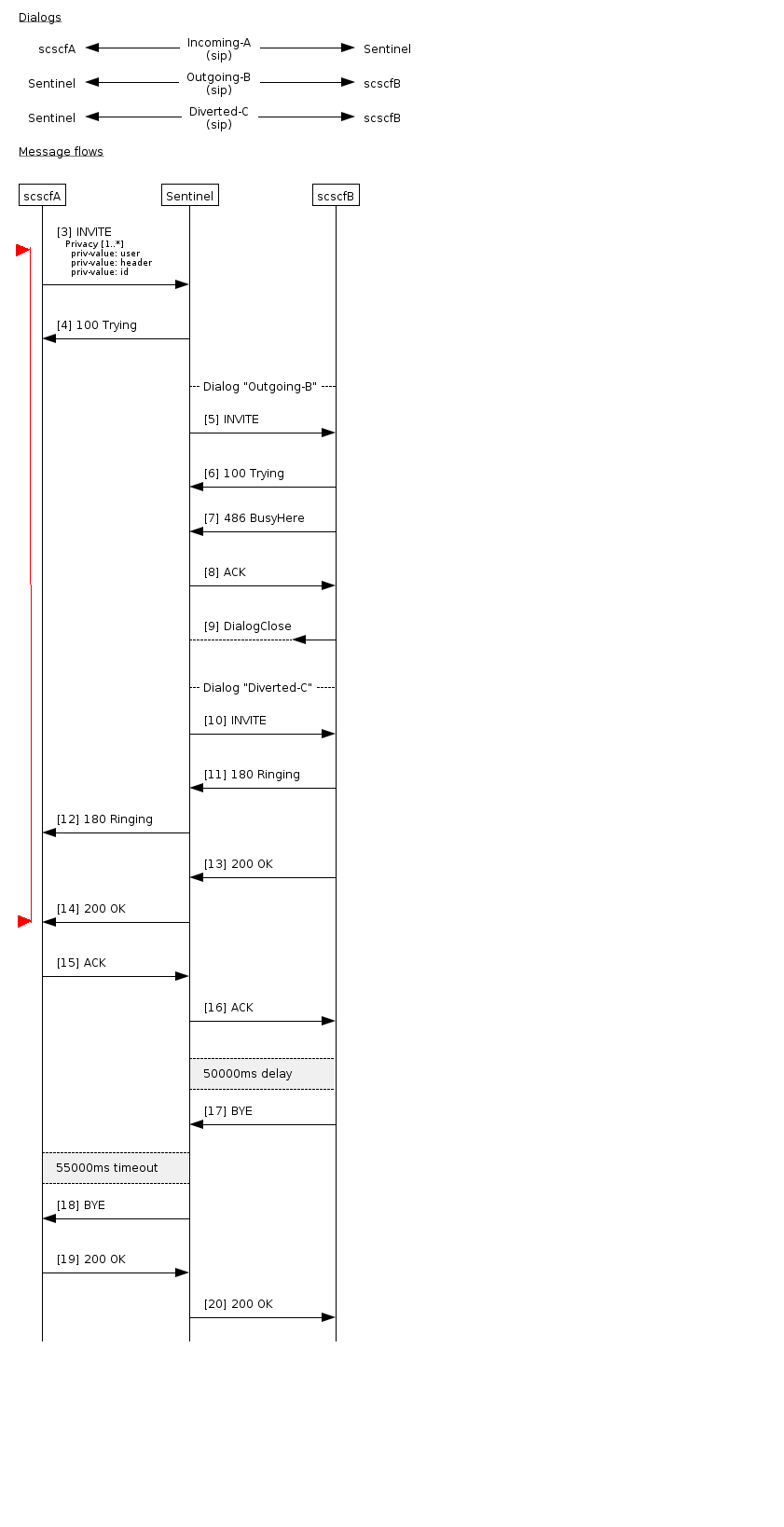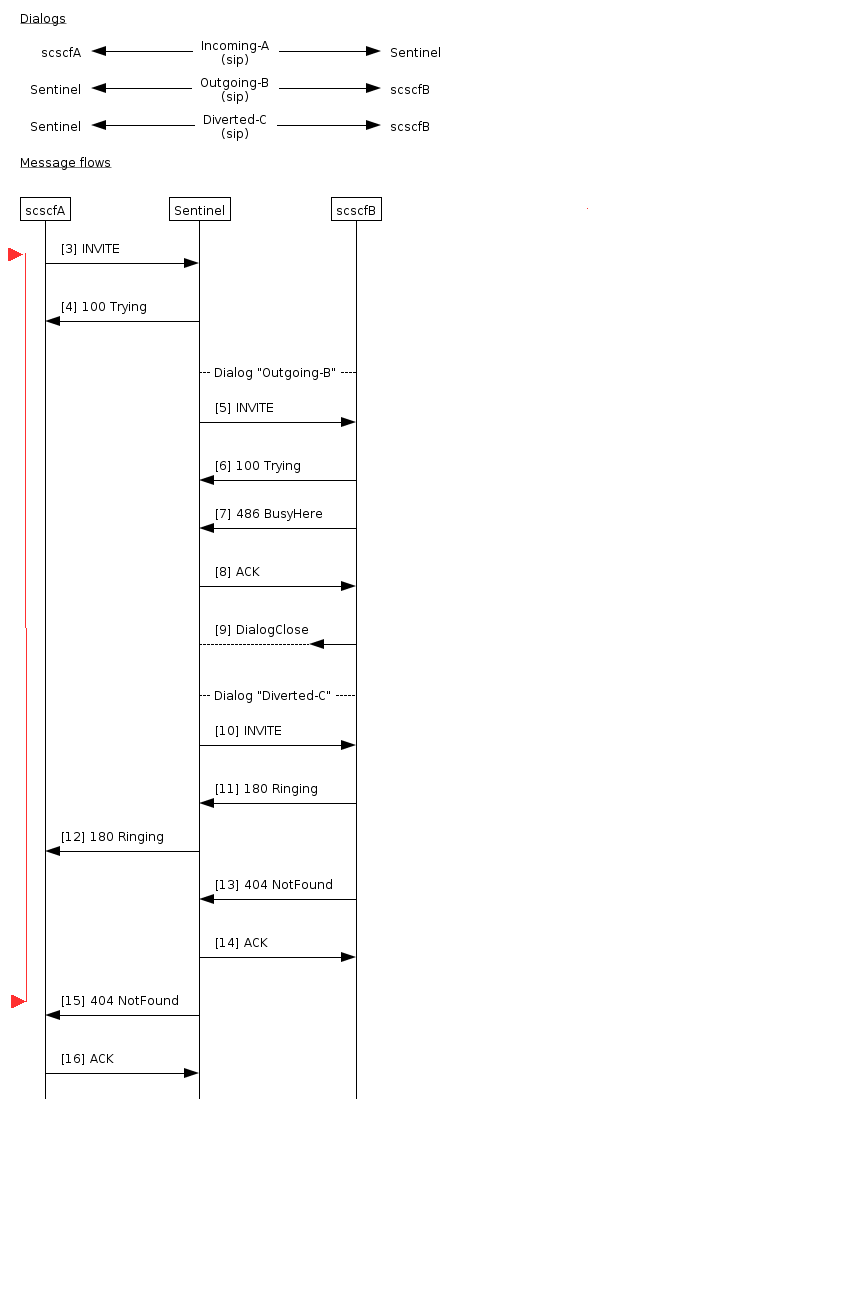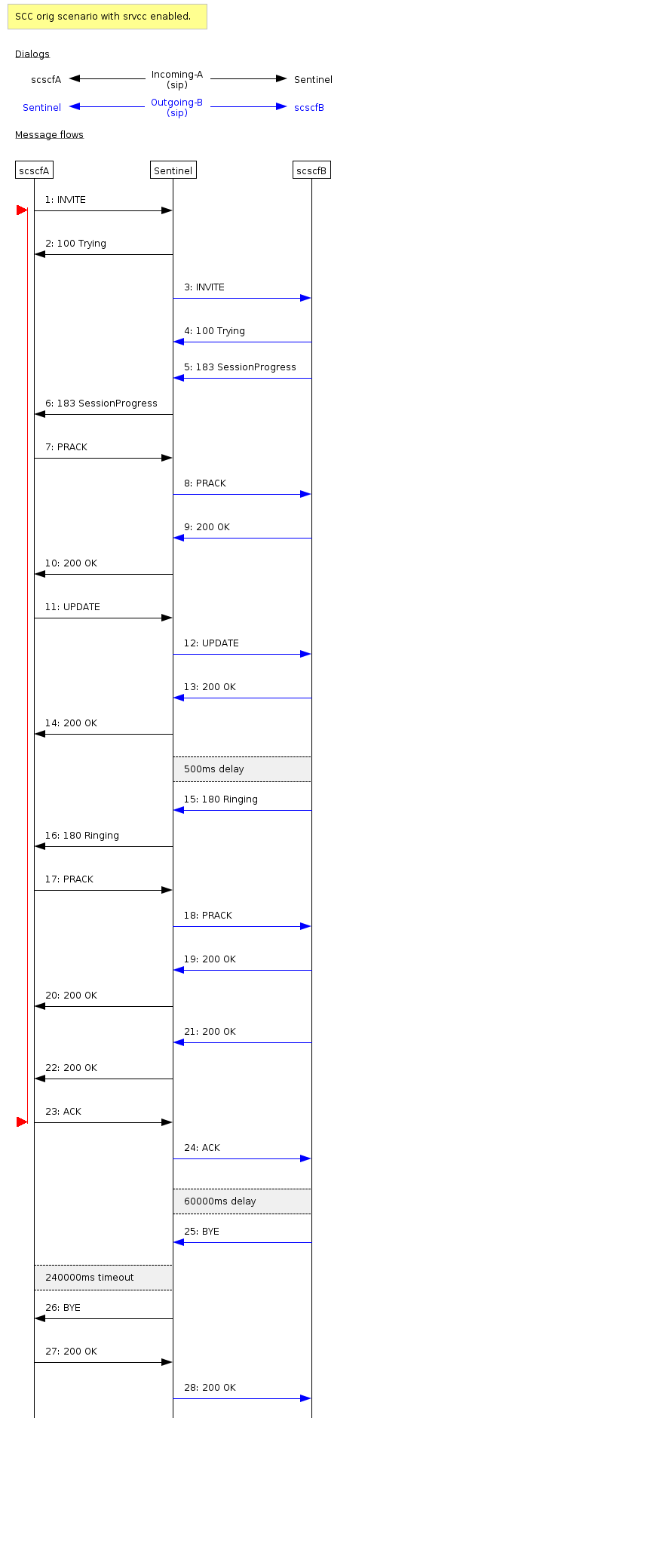The VoLTE benchmarks are broken into two groups. The first group uses four representative MMTEL scenarios, run repeatedly and simultaneously. The second group uses five representative SCC and SCC+IMSSF scenarios, run repeatedly and simultaneously
|
|
Red lines in callflow diagrams mark the points call setup time is measured between. |
First Group
VoLTE full preconditions
A basic VoLTE call, with no active MMTEL features. Radio bearer quality of service preconditions are used.
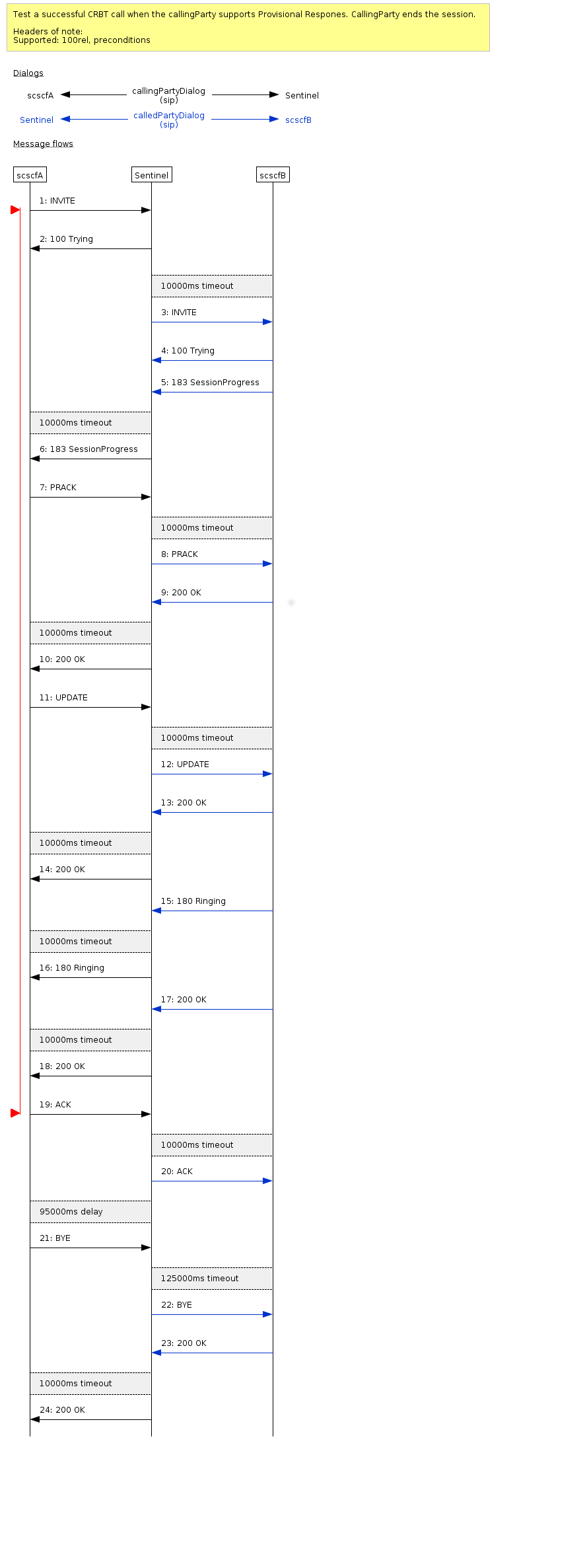
VoLTE full preconditions with one session refresh
A basic VoLTE call, with no active MMTEL features. Radio bearer quality of service preconditions are used. This variant lasts for the default SIP session refresh interval, 10 minutes.
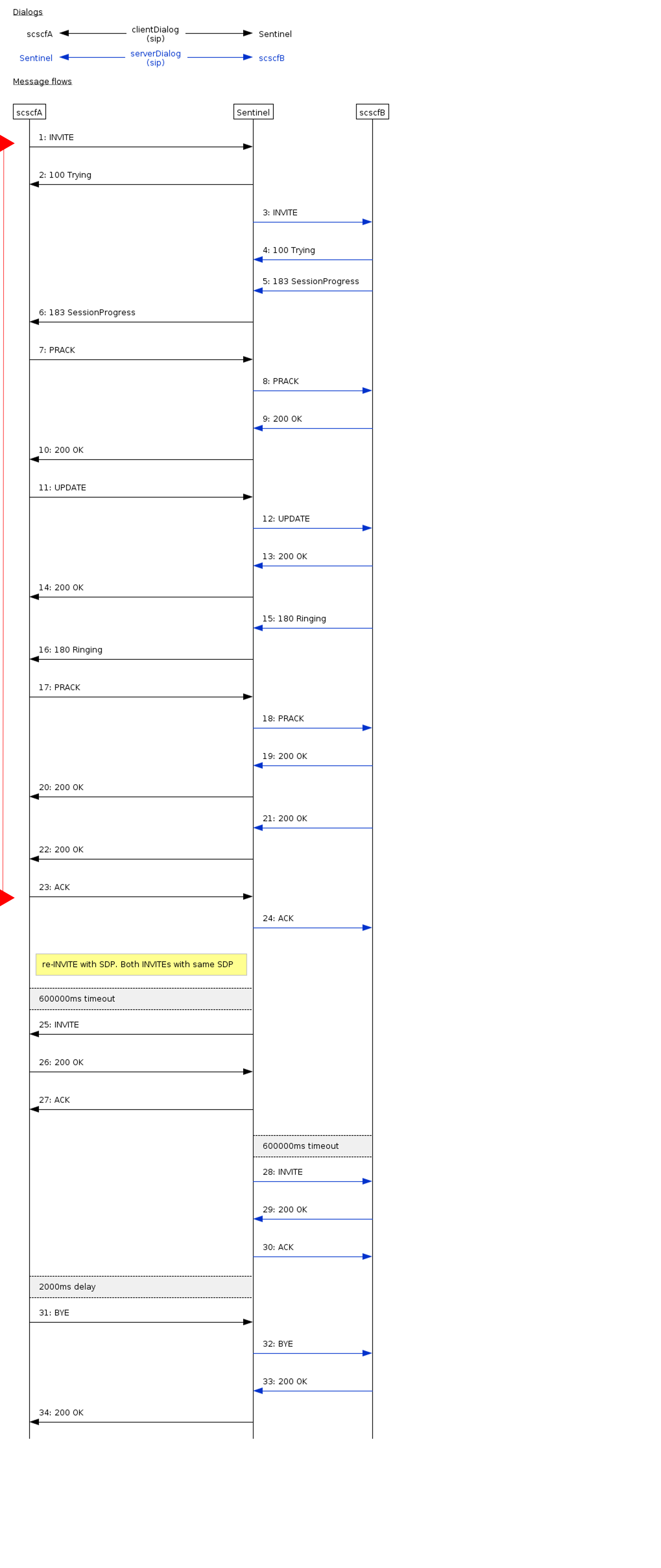
CDIV Success-response
Callflow with Call Diversion active. B party rejects call, call is diverted to C party, C party accepts call, call lasts 50 seconds.
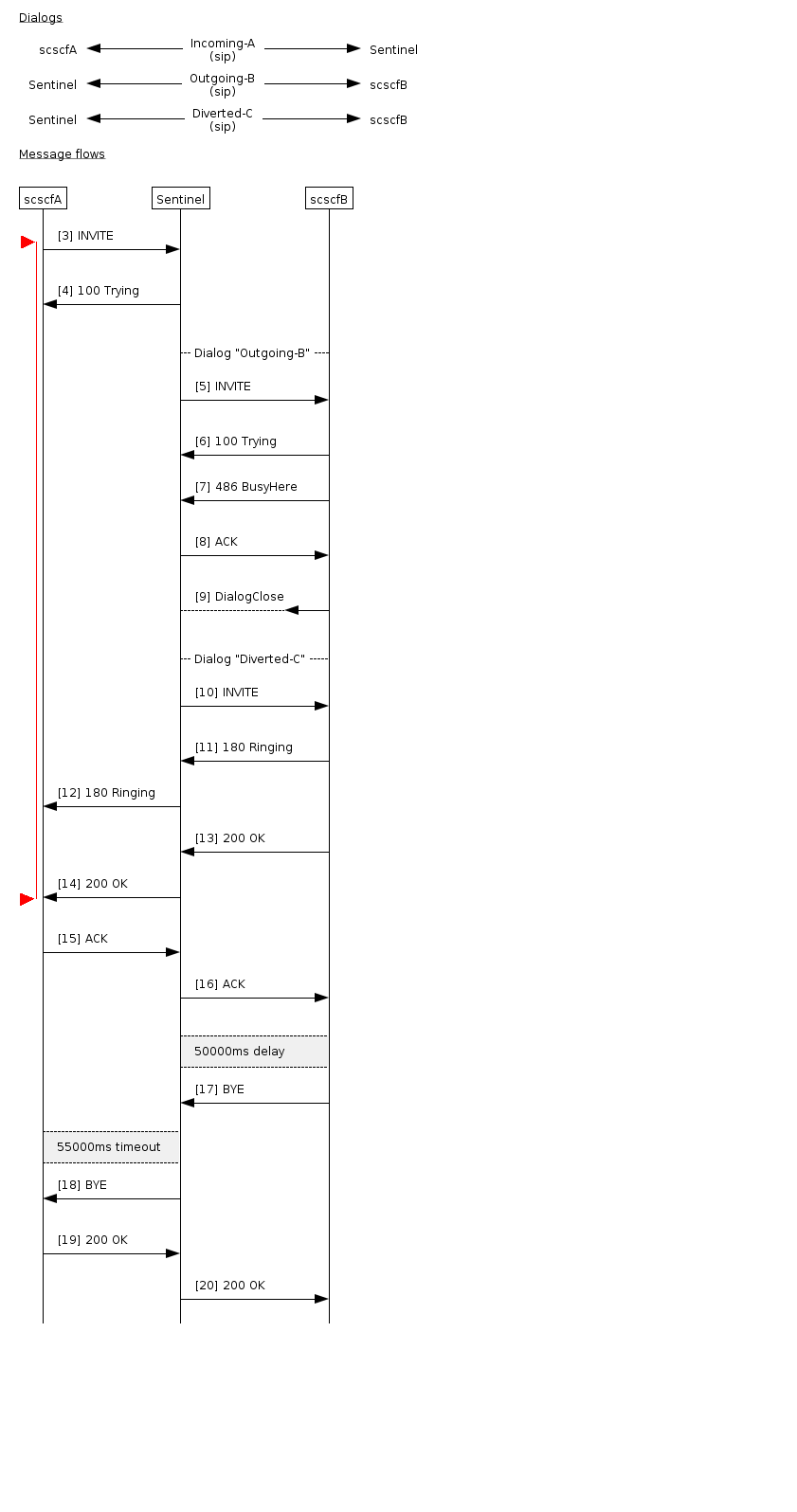
Second group
SCC TADS
A terminating SCC call with TADS. VOPS lookup receives a negative result, call TADs to CS and is answered. Call lasts for 25s.
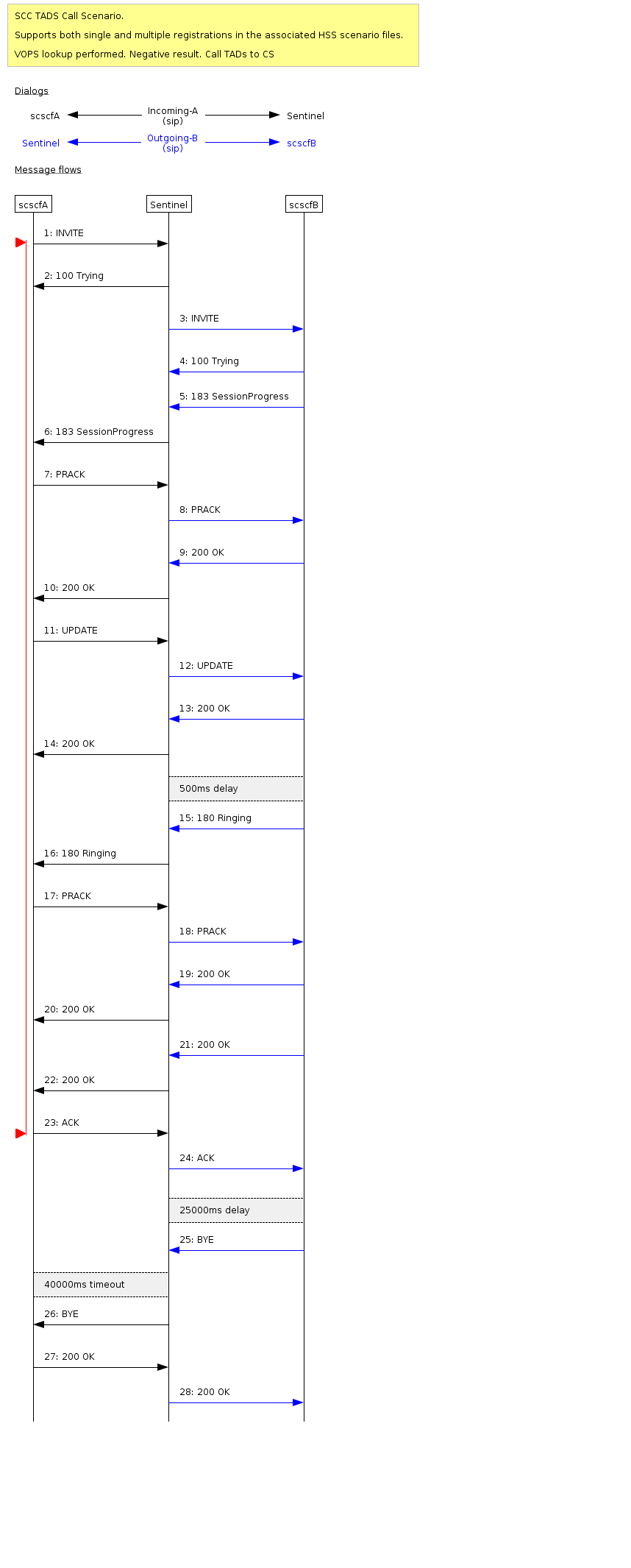
Access-Transfer Originating
An originating call with access-transfer. The call is answered then transferred to another bearer after 15s. The call continues for a further 180s.
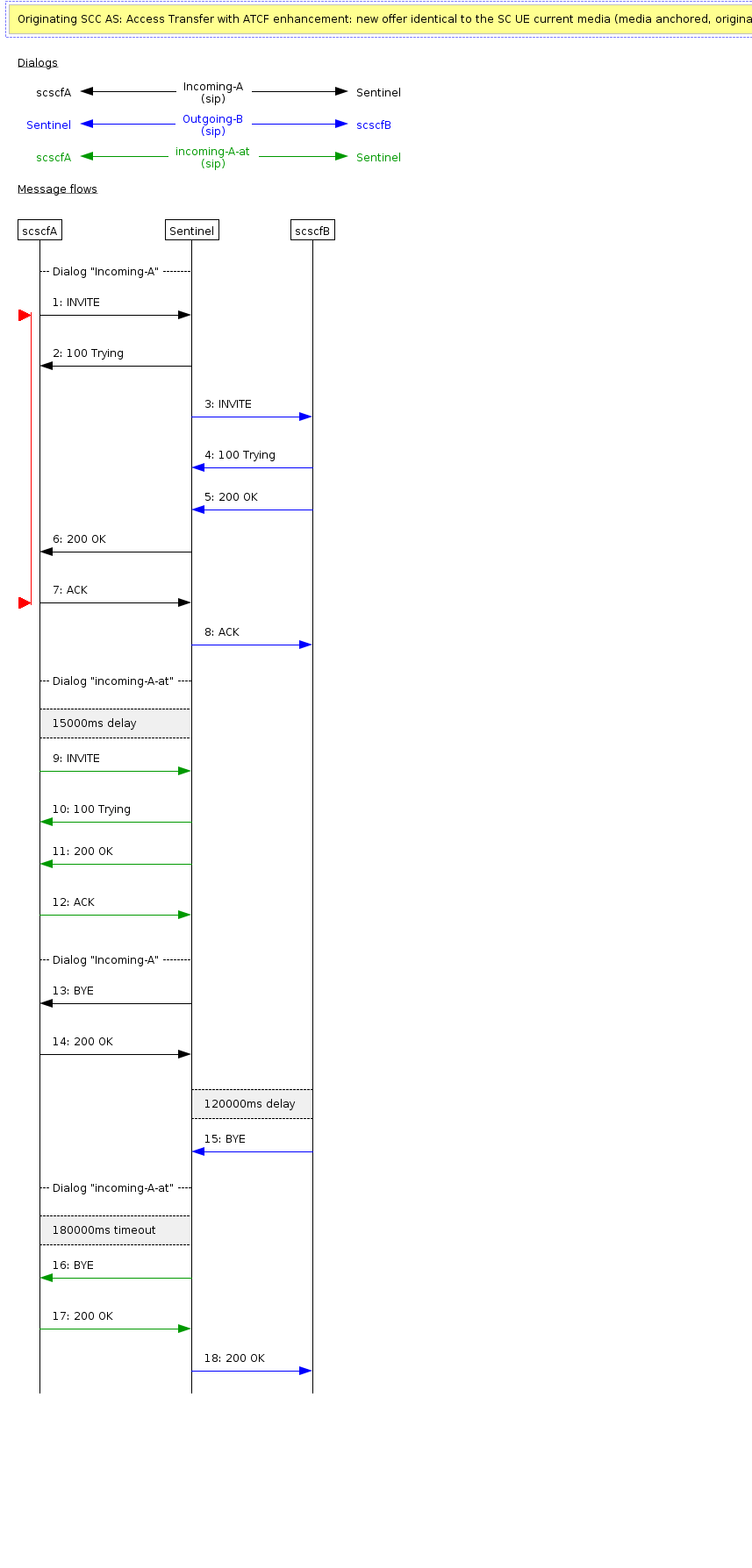
Simple IMSSF Originating/Terminating
An originating or terminating call with cap charging via IMSSF. There are two variants of this scenario, for originating and terminating handling. The sip messages are identical here, except for the necessary headers to trigger originating/terminating processing respectively
